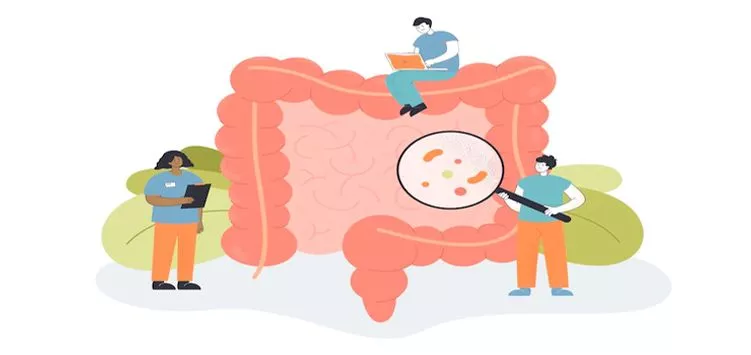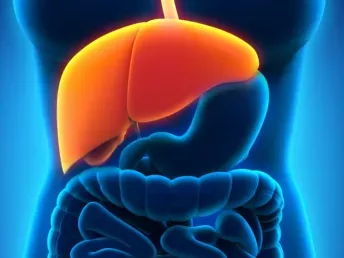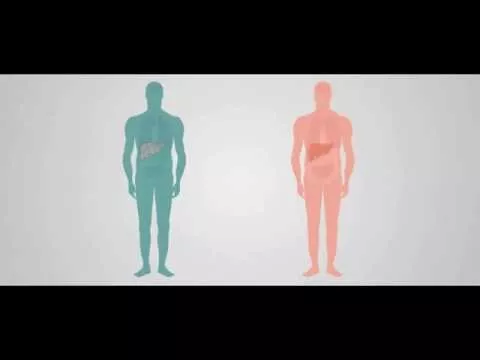Endoscopic ultrasound (EUS) guided intervention is a minimally invasive procedure that uses a flexible endoscope equipped with an ultrasound probe to visualize and access internal organs and tissues in the body. The ultrasound probe emits high-frequency sound waves that bounce off internal structures, creating detailed images of the surrounding tissues.
During EUS-guided intervention, a needle or other medical device is inserted through the endoscope and guided by ultrasound imaging to precisely target and access the area of interest, such as a tumor or a fluid-filled cavity. This allows for accurate biopsy sampling or drainage of the target tissue or organ.
EUS-guided intervention is used to diagnose and treat a variety of conditions, including cancers of the gastrointestinal tract, pancreas, and liver, as well as cysts and abscesses.
FAQs
At Aster Hospitals we provide the highest quality of care and a transformative experience for all your healthcare needs. With our network of multi-speciality hospitals, specialised doctors, and world-class technology, we bring global standards of medical care to our patients.
How obesity can be identified?
The ideal way to measure obesity is by calculating Body mass index (BMI) of a person. BMI is defined as a person's weight in kilograms divided by the square of his height in meters (kg/m2). Increased BMI shows high body fatness.
How liver cancer is diagnosed?
Liver cancer is diagnosed by performing following tests and procedures; It is not possible to diagnose hepatic cancer by doing normal blood tests. A specific blood test is done to find levels of alfa-fetoprotein in serum (AFP). Increased levels of AFP indicate presence of liver cancer. Sometimes the doctor may suggest imaging studies such as a CT or MRI scan. Liver biopsy is another method used to identify malignant or benign tumour. It is done is by removing tissue from liver and examining under the microscope, liver biopsy can be done along with CT scan. Another method to identify liver cancer is by doing laparoscopy, in this procedure the surgeon assesses the signs of hepatocellular carcinoma by inserting a flexible tube with a camera and light at the tip (laparoscope) by making a small incision in the abdomen.
What are the main risk factors affecting liver cancer Treatment?
There are many factors which affects the liver cancer treatment which includes Certain liver conditions: - Non-alcoholic fatty liver - Liver cirrhosis developed due to Chronic hepatitis B virus (HBV) or hepatitis C virus (HCV) infection. Diabetes: Poorly managed type 2 diabetes can make fatty liver and could make the liver cancer worse.
What are the symptoms of liver cancer?
Most of the time the Signs and symptoms of liver cancer do not show up until the later stages, but sometimes the signs and symptoms may show up in the beginning stage. Listed below are the common symptoms of liver cancer of hepatic cancer: You may notice unplanned Weight loss, lack of appetite, nausea or vomiting and a feeling of fullness after having a small meal. Enlarged liver & spleen, pain in the right shoulder blade, abdominal pain and swelling Itching and Yellowing of the skin and eyes (jaundice) People with hepatic cancer may experience fever, enlarged veins on the belly that can be seen through the skin, and abnormal bruising or bleeding. Some signs and symptoms of hepatic cancer include increased blood calcium levels (hypercalcemia), Low blood sugar levels (hypoglycaemia) and high cholesterol levels
What are the treatments available for obesity?
The aim of the obesity treatment is to maintain a healthy Body mass index (BMI) to prevent many other diseases associated with obesity. Following a healthy dietary pattern and regular physical activity helps in sustaining overall health.
Do Genetic reasons cause obesity?
Genetic predisposition is one of the reasons for obesity, it is a well-known and currently proven fact. Around 43% of the general population is susceptible to become obese due to genetic factors.
What is Obesity?
Obesity is a complex disease characterized by abnormal or excessive accumulation of fat in body that may impair health. People who have obesity are prone to develop heart disease, diabetes, high blood pressure and cancer.
Are there any side effects of undergoing bariatric surgery?
The side effects of bariatric surgery are relatively lesser compared to the health issues that you suffer from obesity. Some side effects may include general weakness, malnutrition, temporary hair loss. You can overcome these issues by following the guidelines from dietitians and doctors.
When would I be able to return to work after bariatric surgery?
Usually, it may take up to one to two weeks to return to work, depending on the type of procedure that you undergo.
How liver cancer is treated?
Treatment of liver cancer depends upon various factors, it includes the extent of the liver cancer, patients age, health conditions and personal preferences. Surgery: In liver surgery, the liver cancer cells and small portion of healthy liver tissue is removed to promote liver health. Liver transplant surgery: In liver transplant surgery the diseased liver of patient is replaced by whole or partial healthy liver from another person. Heating cancer cells. This is a minimally invasive procedure; the cancerous cells are ablated by using heat generated from medium frequency electric current. Freezing cancer cells: liquid nitrogen is used to freeze the cancer cells with the help of a surgical instrument (cryoprobe) Alcohol injection: In this method alcohol is directly injected to the tumour to treat liver cancer. Injecting Chemotherapy drugs: Injecting chemotherapy drugs directly to the liver is known as chemoembolization, it can be done as stand-alone treatment or in combination with ablation or surgery.
What are the prevention methods for liver cancer?
When it comes to prevention of liver cancer, it is really important to maintain a healthy lifestyle by doing regular exercise and following a balanced diet. Also, avoid hepatitis infection and exposure to cancer-causing substances such as aflatoxins, a toxin found on agricultural crops such as maize.
What causes liver cancer?
In some scenarios the cause of liver cancer is identified, for instance chronic hepatitis infection damages the DNA in the liver cells and cause liver cancer. Sometimes liver cancer occurs in patients with no underlying health conditions and it's not clear what causes it.
What are the types of liver cancer (Hepatocellular carcinoma)?
There are mainly five types of liver cancer based upon the type of cell in the liver. Hepatocellular carcinoma (HCC) Hepatocellular carcinoma (HCC) is a common type of primary liver cancer which affects the main liver cells called hepatocytes. People with cirrhosis and men are more prone to get Hepatocellular Carcinoma. Fibrolamellar carcinoma Fibrolamellar carcinoma is rare liver cancer, it comes as a subtype of Hepatocellular carcinoma and usually seen in healthy teens and adults under 40 years old. Interestingly, people diagnosed as Fibrolamellar carcinoma is not usually associated with liver cirrhosis or Hepatitis B or C infection. Cholangiocarcinoma (bile duct cancer) Cholangiocarcinoma is a rare liver cancer of the bile ducts, also categorized under primary liver cancer. The carcinoma begins in the section of ducts inside the liver is called intrahepatic cholangiocarcinoma. Angiosarcoma Angiosarcoma a type of rare liver cancer affects the blood vessels of the liver; it is commonly seen in the elderly population. Angiosarcoma is also known as soft tissue sarcoma or haemangiosarcoma. Hepatoblastoma: Hepatoblastoma is a kind of rare primary liver cancer that mainly affects children under 3 years old.
Is obesity curable?
Obesity is a progressive and relapsing chronic disease which can be either prevented or reduced by losing weight by following a healthy dietary pattern and regular regimen of exercise.
What are the causes of Obesity?
The primary cause of obesity is the energy imbalance between calories consumed and calories expended. Overweightness is commonly caused by over eating and sedentary lifestyle. For instance, if you consume high amounts of energy, particularly fat and sugars, but do not burn off the energy through exercise and physical activity, much of the surplus energy will be stored by the body as fat. Factors that can lead to obesity are, Increased intake of energy-dense foods that are high in fat and sugars Decrease in physical activity due to the increasingly sedentary nature of work Environmental and societal changes associated with development Lack of supportive policies in health, agriculture, environment, food processing and education Diseases – Hypothyroidism, Chronic stress, Insomnia & Hypersomnia Eating Disorders Smoking cessation Drugs
Is the bariatric procedure safe?
Yes, it is relatively safe procedure with the help of cutting-edge modern technology and experienced medical team at Aster Medcity, Kochi
What are the diets to be followed after bariatric surgery?
Your dietitian will help you to follow an ideal dietary plan. Usually, the diet includes foods rich in protein, vitamins, minerals, also it is important to manage the fluid intake to keep hydrated.
Blogs
The source of trustworthy health and medical information. Through this section, we provide research-based health information, and all that is happening in Aster Hospital.

















